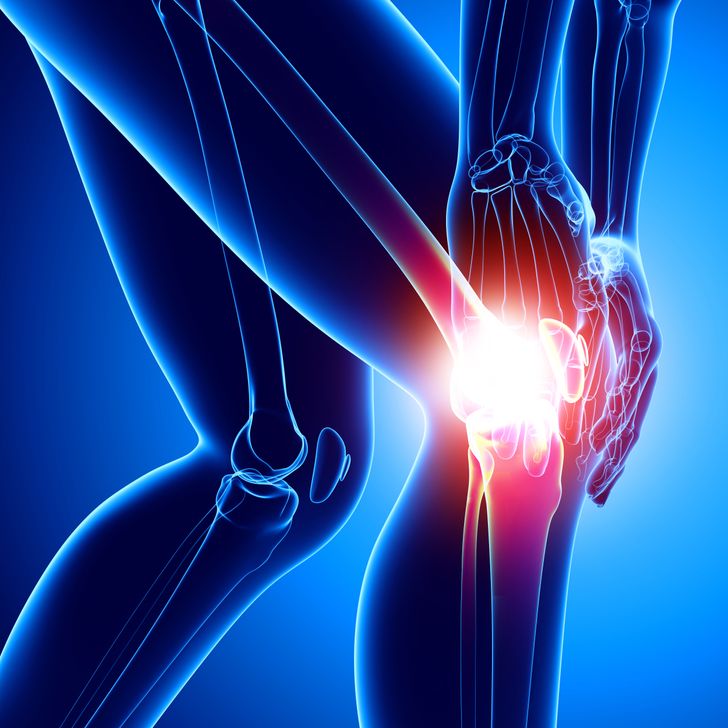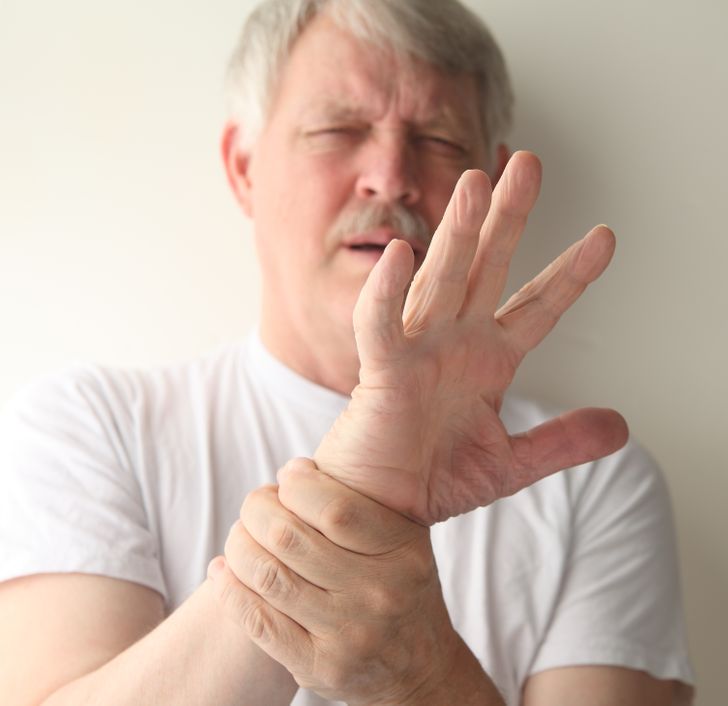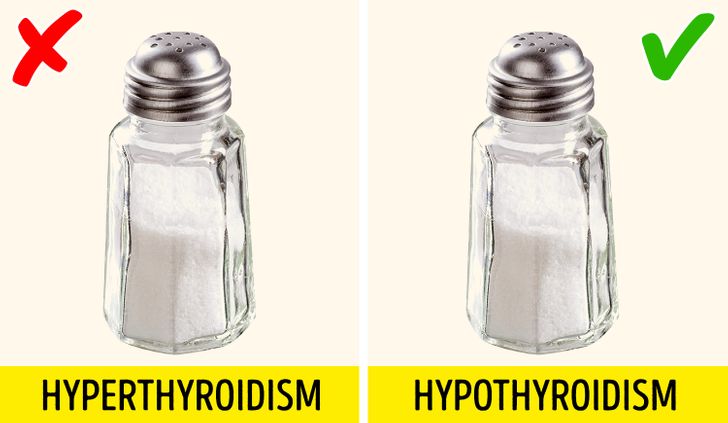The thyroid is a small gland around the windpipe under your larynx (voice box). The hormones that it secretes control the body’s metabolism. But like all things, this “mother of all glands” is susceptible to malfunction, and, when this happens, it acts in different ways, depending on whether it produces too much hormone (hyperthyroidism) or doesn’t produce enough (hypothyroidism.)
We put together a list of symptoms for both thyroid conditions, so you can notice a faulty thyroid. If you think something may be wrong, be sure to visit a doctor as soon as possible.
Thyroid Disorders
Hypothyroidism
Hypothyroidism is a condition in which the thyroid gland does not make enough thyroid hormone. Iodine deficiency is one of the most common causes of hypothyroidism.
Hypothyroidism is more common in women than in men, with women over 60 years of age being the most susceptible.
Now let’s take a look at its symptoms.
Lethargy
The thyroid gland produces hormones that control how the body uses energy. Insufficient hormone production can cause a feeling of depression, slowness, and lethargy.
A Change In Your Voice

The thyroid gland and larynx (vocal box) are very close to each other. Therefore, any dysfunction of the thyroid gland can affect the larynx and cause problems in your voice.
Thickened Skin And Thinning Eyebrows
Hypothyroidism leads to calcification of the skin. This makes it appear thick, dry, and flaky in texture.
It can also cause thinning of the eyebrows, which is quite insidious, but usually appears among the first symptoms.
Joint And Muscle Pain

Fluid retention, a common symptom of hypothyroidism, can cause pain in the muscles and joints. It occurs more frequently around the ankles and feet and worsens with physical activity.
Hyperthyroidism
Hyperthyroidism is a condition caused by excessive production of thyroid hormone in the body. About 60% to 80% of cases of hyperthyroidism in the United States are caused by Graves’ disease.
Other causes include multinodular goiter, toxic adenoma, inflammation of the thyroid, and an excessive amount of iodine in the diet. Its appearance is approximately 2 to 10 times more widespread in women.
So what are the symptoms of hyperthyroidism? Let’s have a look.
An Increase In Appetite

An increased appetite can be a sign of hyperthyroidism since the excessive release of thyroid hormone in your body can make you hungry all the time.
The only advantage of this is that excessive food intake does not necessarily make you gain weight, as the increased metabolism of the body compensates.
Hand Tremors

Everyone would experience slight tremors if their hands and forearms were held in the same position for a long time.
Since hyperthyroidism accelerates almost all metabolic functions and puts the body in fast forward mode, the amount of time after which the hands would normally begin to shake is reduced.
This causes visible tremors in the hands and forearms.
Lifestyle Tips To Manage Thyroid Malfunctioning

Lifestyle Tips For Hypothyroidism:
Follow a healthy diet of vegetables, fruits, whole grains, and lean protein. To keep your energy levels stable, eat small meals throughout the day. Weight gain is a common symptom of hypothyroidism, so a healthy diet can help you control weight gain.
Follow an active lifestyle. Exercise can help you maintain a healthy weight. It also increases your energy levels and decreases stress, which is especially important if you have hypothyroidism.
Practice meditation and yoga. Hypothyroidism can cause lethargy and depression. Both meditation and yoga can help you in your battle against these conditions.
Go to bed early and take time to sleep. Feeling lethargic and low on energy are common symptoms of hypothyroidism. So give your body adequate sleep to replenish that energy.
Lifestyle Tips For Hyperthyroidism:
Avoid iodine. People with hyperthyroidism should not eat foods rich in iodine. Also, avoid milk and other dairy products, such as ice cream, cheese, yogurt, and butter. Seafood, such as fish, sushi, shellfish, seaweed, and seaweed, should also be avoided.
Practice meditation. Overproduction of thyroid hormones results in increased brain stimulation, making patients feel nervous or anxious. Practice meditation to control anxiety.
Drinking water! Hyperthyroidism causes you to lose a lot of water when you urinate. So keep your body well hydrated.
We want everyone to stay healthy. But if you have a thyroid malfunction or know someone who has it, share the information you have learned with your loved ones.


